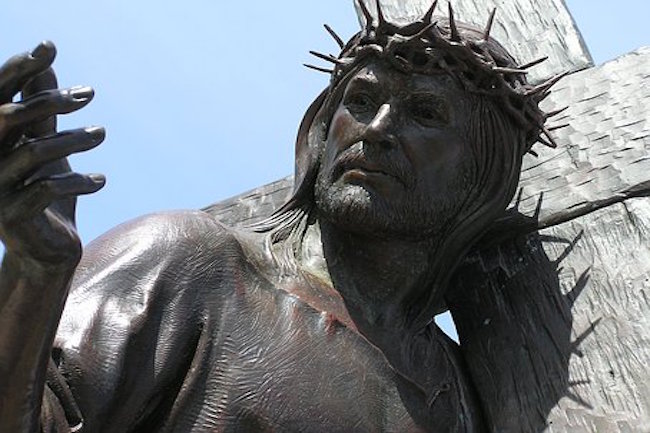Worldview Matters – Especially At Christmas! by: Bill Heid for Off the Grid News
Lo, He abhors not the Virgin’s womb / very God, begotten, not created.
— “O Come All Ye Faithful”
Ideas Have Consequences.
—the title of a book by Richard Weaver (1948)
The Word Was Made Flesh
Incarnation is a word they say is… pregnant with meaning. The eternal Son of God took a true human nature and tabernacled among us. Yep, God the Son became a man in the person of Jesus of Nazareth. Yet, the nature of this union has always been a bit of a mystery, and for some good reasons. After all, how exactly deity and humanity can come together in a personal union is pretty tough for anyone to say. We can only confess what Scripture confesses many times and in many ways.
Here are just a few passages: “The Word was made flesh” (John 1:14). “God sent forth his Son, made of a woman, made under the law” (Gal. 4:4). “God was manifest in the flesh” (1 Tim. 3:16). “Jesus Christ is come in the flesh” (2 Jn. 1:7). “For unto you is born this day in the city of David a Savior, which is Christ the Lord” (Luke 2:11).
Through the centuries, humanistic thought (rationalism) has always argued against a true Biblical incarnation. In the name of oversimplifying or even rejecting outright what mankind has considered to be incomprehensible, many theologians and churchmen have dismissed outright the very idea of incarnation. Some say Jesus wasn’t fully God. Others say he wasn’t a real human being like you or me. Some have said that Jesus was a man who worked hard, made the right moral choices along the way and by his efforts, became God.
The truth is, the doctrine of the Incarnation (the Gospel) has been the target of those who will not have the Christ of Scripture as their Savior for a very long time indeed.
Christological Heresies In The Ancient Church: Gnosticism
In the days of the early Church, the Gnostics were among the first to promote a false and misleading version of Christ. Like most half-truths, there was a small degree of what seemed true in their argument. Deity, according to them, must remain accessible to anyone who seeks it. But the Gnostics didn’t want that accessibility in a physical Christ. They argued that flesh (all matter) has very little value in a mostly spiritual universe.
In fact, many Gnostics saw flesh (matter) as essentially evil. They argued that an absolute deity could never join itself to anything so at odds with what’s spiritual and heavenly. The Gnostics would still grant that God could take on a human appearance. Or more likely, they thought that a man in his quest for transcendence might grab a hold of the divine and realize the divinity already inherent in his nature, or something like that. And so, to the Gnostics, a God like this would never take on flesh (humanity) to tabernacle among us.
Christological Heresies: Arianism
In the early 4th century, the Arians offered their own revision of Christ. He was, according to Arius, God’s Son, but a son only by adoption. By and large, Arius’s version of Christ paints the Second Person of the Trinity as basically a Greek demigod. To Arius, Christ was the greatest of all creatures and certainly the creature whom the Father used to bring everything else about in the Universe.
The Father alone was truly God, the Arians said. Nevertheless, because he was transcendent in His essence and infinite in His perfections, the Arian God was incapable of revealing himself or communicating with us. But not just that, He was so distant that even the Son couldn’t hear or understand Him completely. How much less, they said, could mere mortals such as us comprehend him?
Christological Heresies: The Apollinarians
A generation or so later, the Apollinarians offered still another take on the Incarnation. They admitted that the Son was truly God. They also admitted that He was, in some sense, human. Nonetheless, the Apollinarians were uncomfortable with exactly how the Son became incarnate. They couldn’t believe that Jesus could possess created human intelligence and volition and at the same time possess divine intelligence and volition. They argued that an incarnation of this sort produced a Christ who was actually two people, one divine and one human.
Their solution was to make Christ an “almost human” in that He came with a human body and an emotional soul (such as animals have, they said) but yet lacked a human spirit (a rational soul). In their theology, the divine word or logos made up for any “lack” in Christ’s human nature. Christ’s mind was a divine mind only. The Apollinarian Christ had put on the look and feel of humanity… flesh, blood, and emotion… but this Christ couldn’t know the realities and limitations of human thought and reasoning. He was, at best, God masquerading in the flesh.




